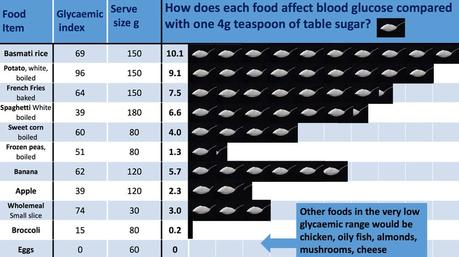
Remember that toe-tapping reggae song "Pressure Drop" covered by groups like the Clash and the Specials? The lyrics repeated: " Pressure drop, oh pressure, oh yeah, pressure gonna drop on you... "
Well, you'll be humming that catchy tune when you read the latest scientific study out of Dr. David Unwin 's low-carb GP practice in North West England, published last week.
That's because significantly lower blood pressure was a key finding among the subjects the study followed who adopted the low-carb diet. And it stayed low. In fact, 27 patients were able to get off blood pressure medication completely. That's really important when blood pressure medications are typically taken for life.
Unwin was the lead of four authors (including two cardiologists) of the study published July 26 in an open access journal. They collected data on 154 patients, 90 men and 64 women, with type 2 diabetes or impaired glucose tolerance. Patients were supported in doing the low-carb diet through Unwin's Norwood primary care practice. Data was collected between 2013 and 2018, with the mean data collection time on patients being 2 years (and counting).
Lowered blood pressure was not the only significant finding. The average weight loss for patients was 9.5 kg (20 pounds) which was sustained for two years and more. Their total cholesterol and lipid profiles improved, too. The impact on their diabetes was not reported, as that will be the subject of another paper.
International Journal of Environmental Research & Public Health 2019: Substantial and sustained improvements in blood pressure, weight and lipid profiles from a carbohydrate restricted diet: An observational study of insulin resistant patients in primary careIn the article, the authors note that medical advice to the patients focused primarily on telling the patients to dramatically reduce their total dietary intake of sugar. That meant not only cutting out table sugar, but also eliminating any sweet or starchy carbohydrates that become sugar once digested. Unwin's elegant infographic illustrates this in a way that is simple for patients to understand.

The write up contains a fascinating discussion about the array of possible mechanisms behind the drop in blood pressure, which is too complex to summarize here. But it is definitely worth a read in this thorough and well-written paper.
The authors note there are limitations to the study: it wasn't randomized, some of the variables among the participants could not be controlled, and they could not judge patients' level of adherence to the diet.
But the positive metabolic outcomes do reflect what can be accomplished by a family physician in a typical primary care practice. "We present a simple cohort study take from the 'real world' of 10 minute GP appointments"
Check it out, and I bet you'll be singing "Pressure drop" in your head, too. In fact, put it on and dance around.


